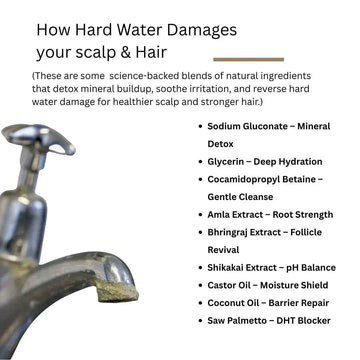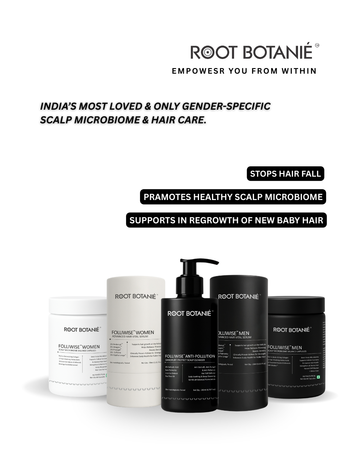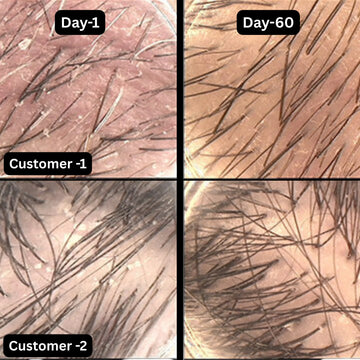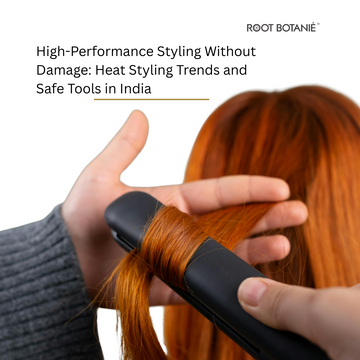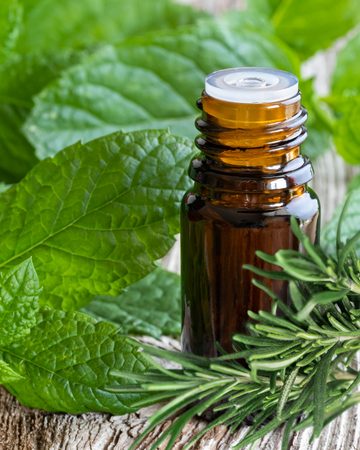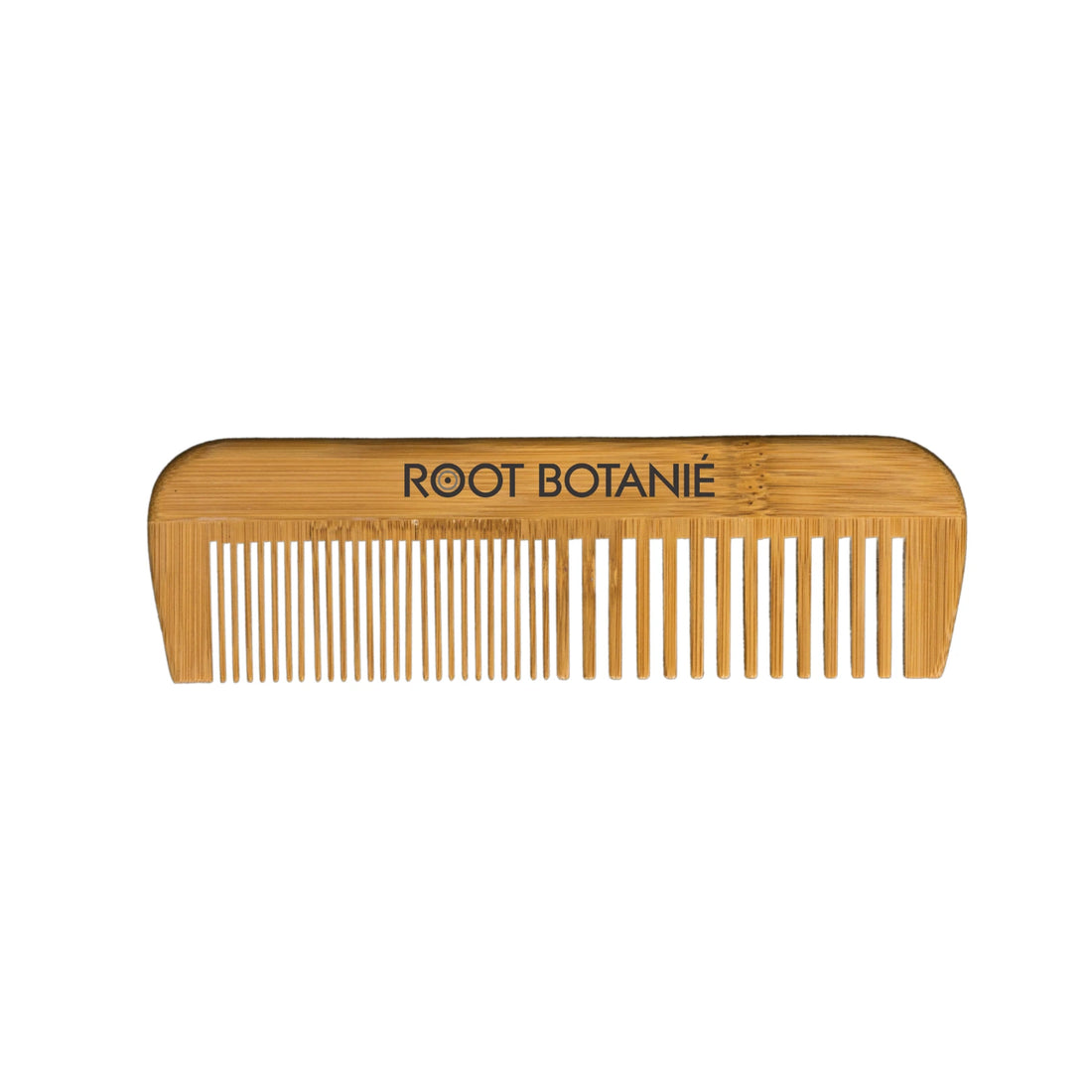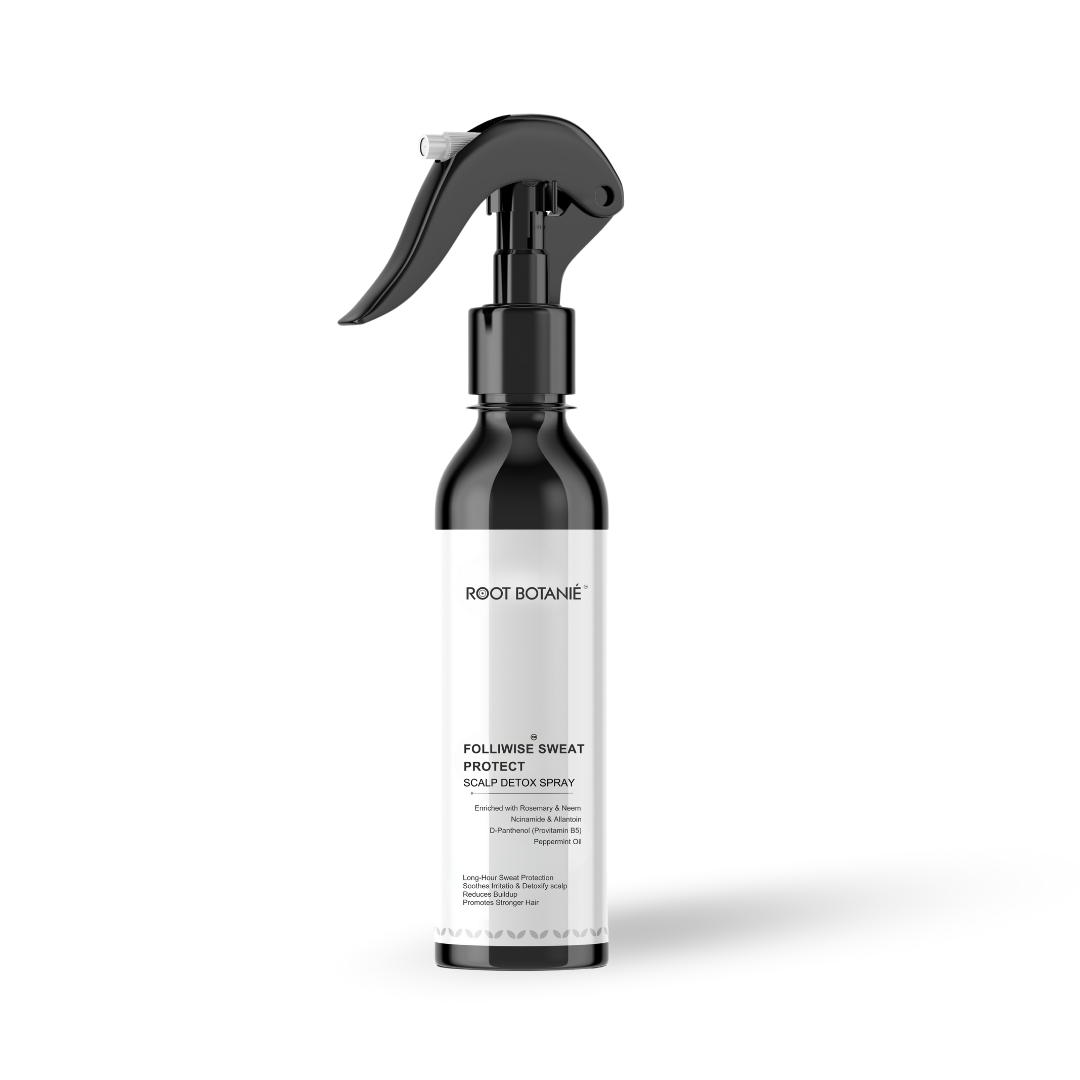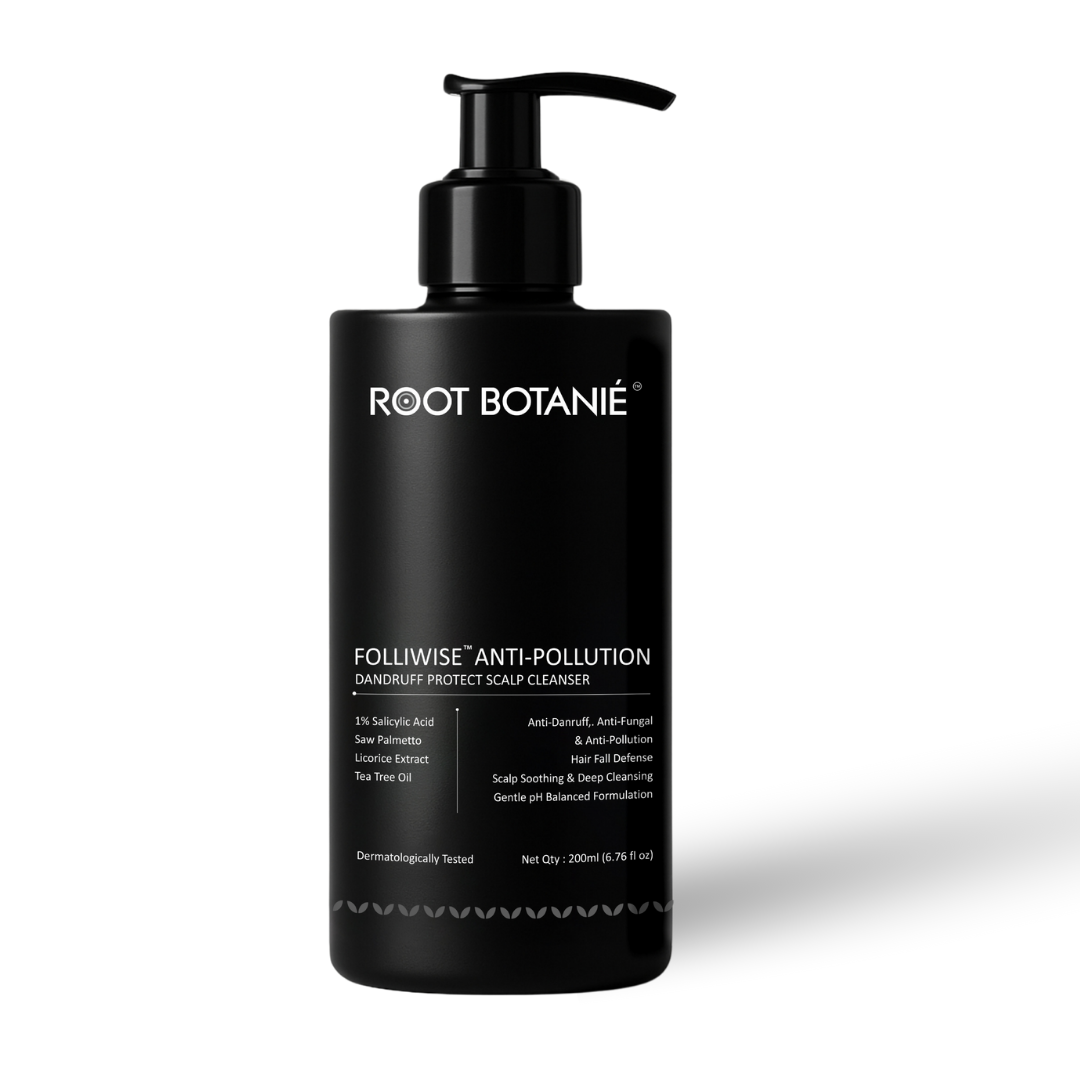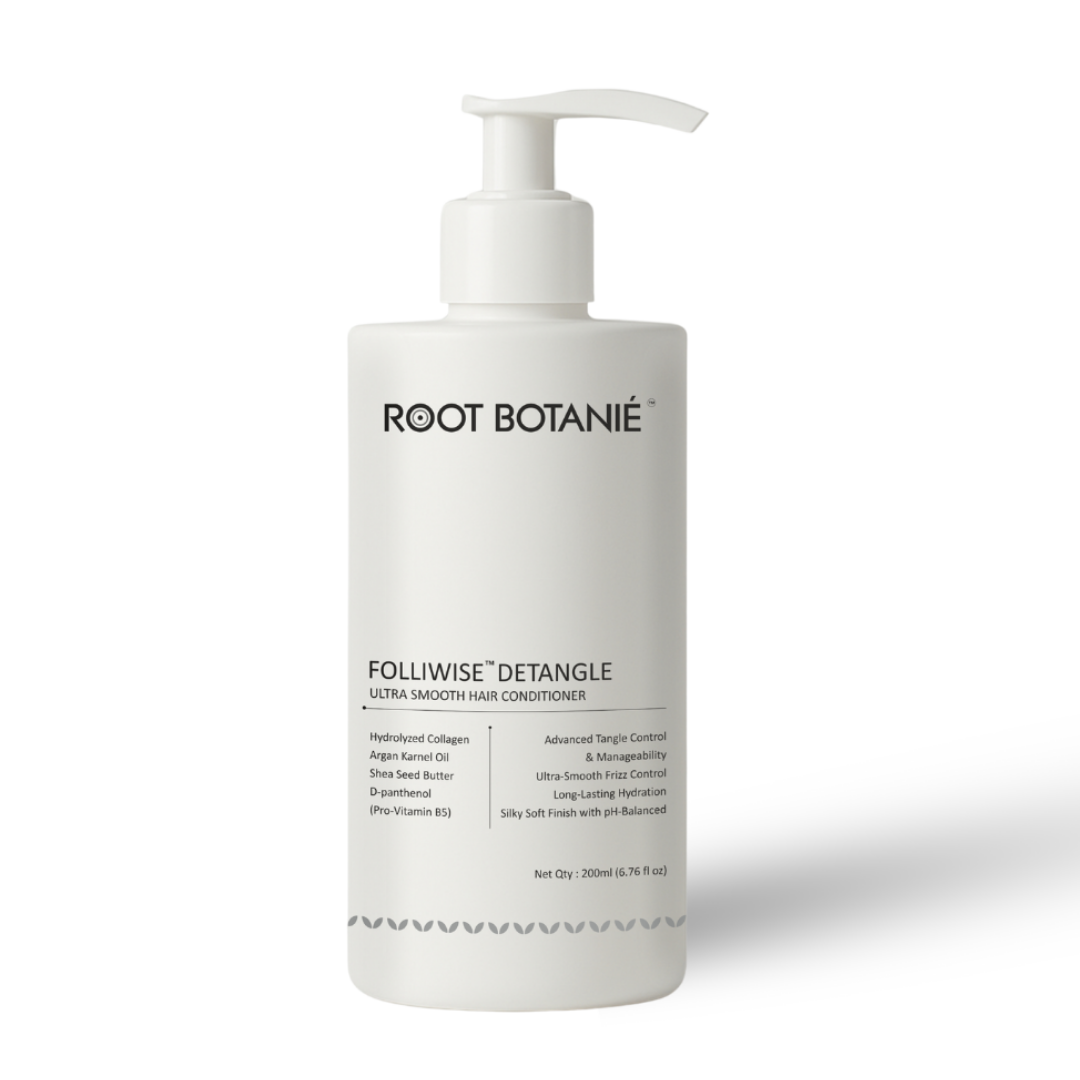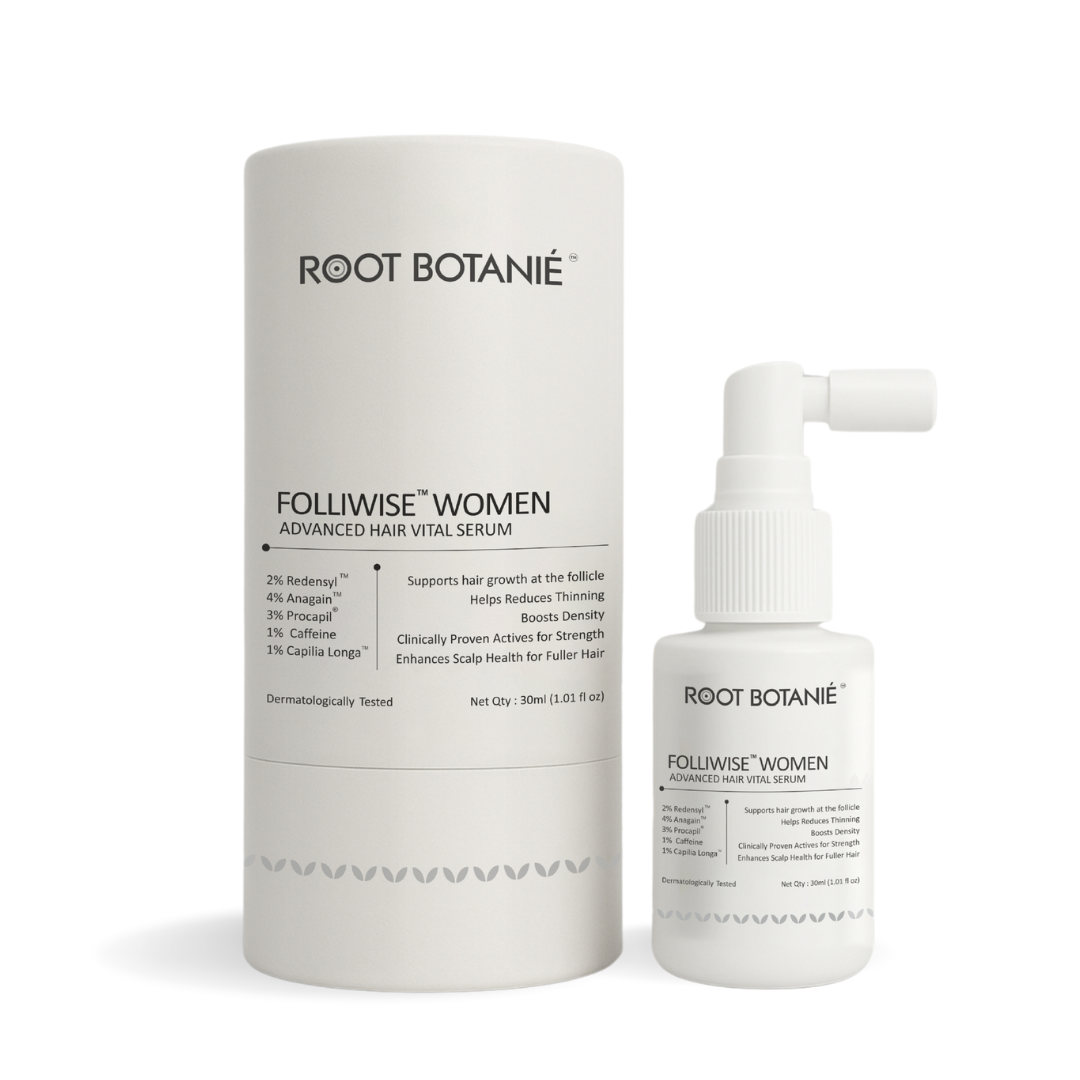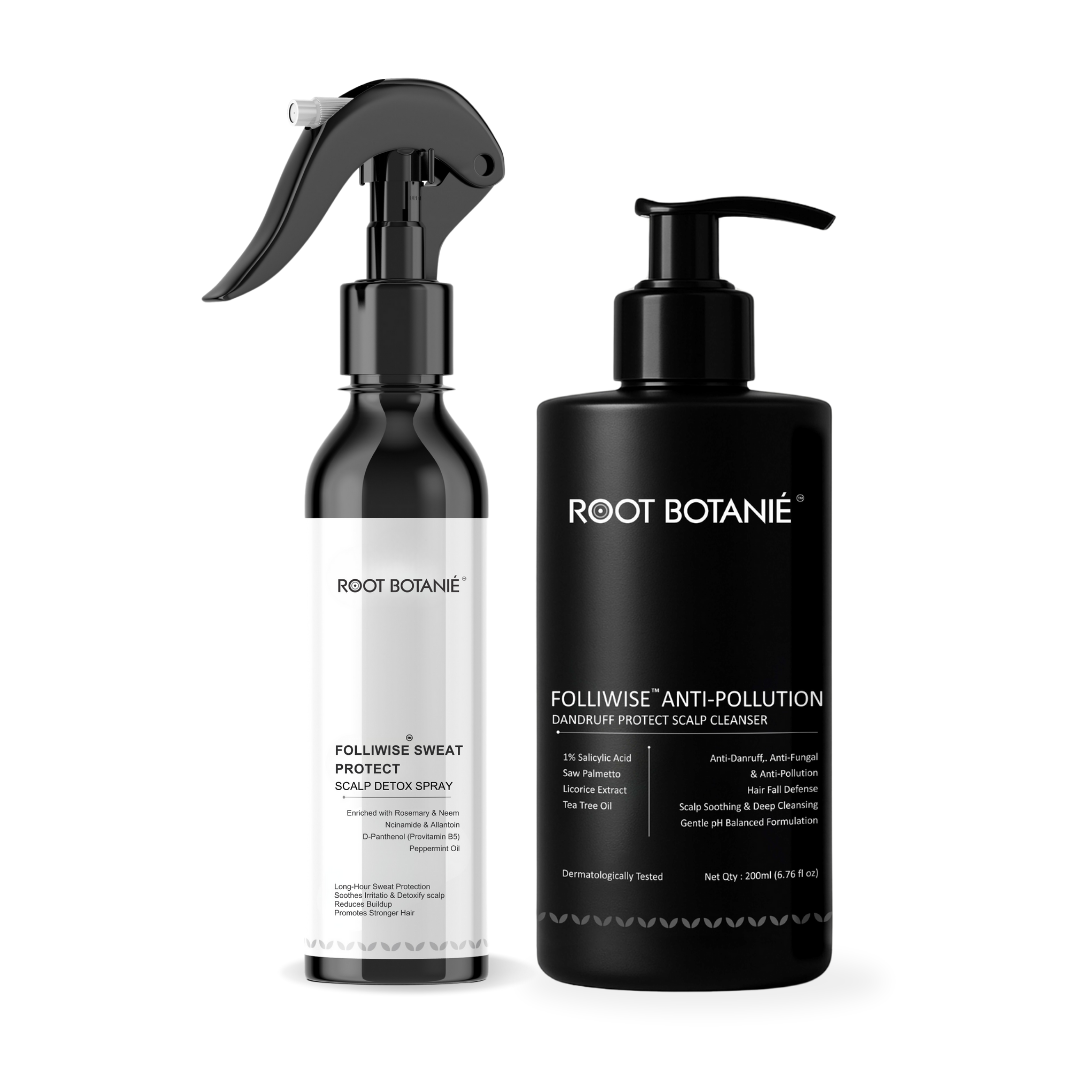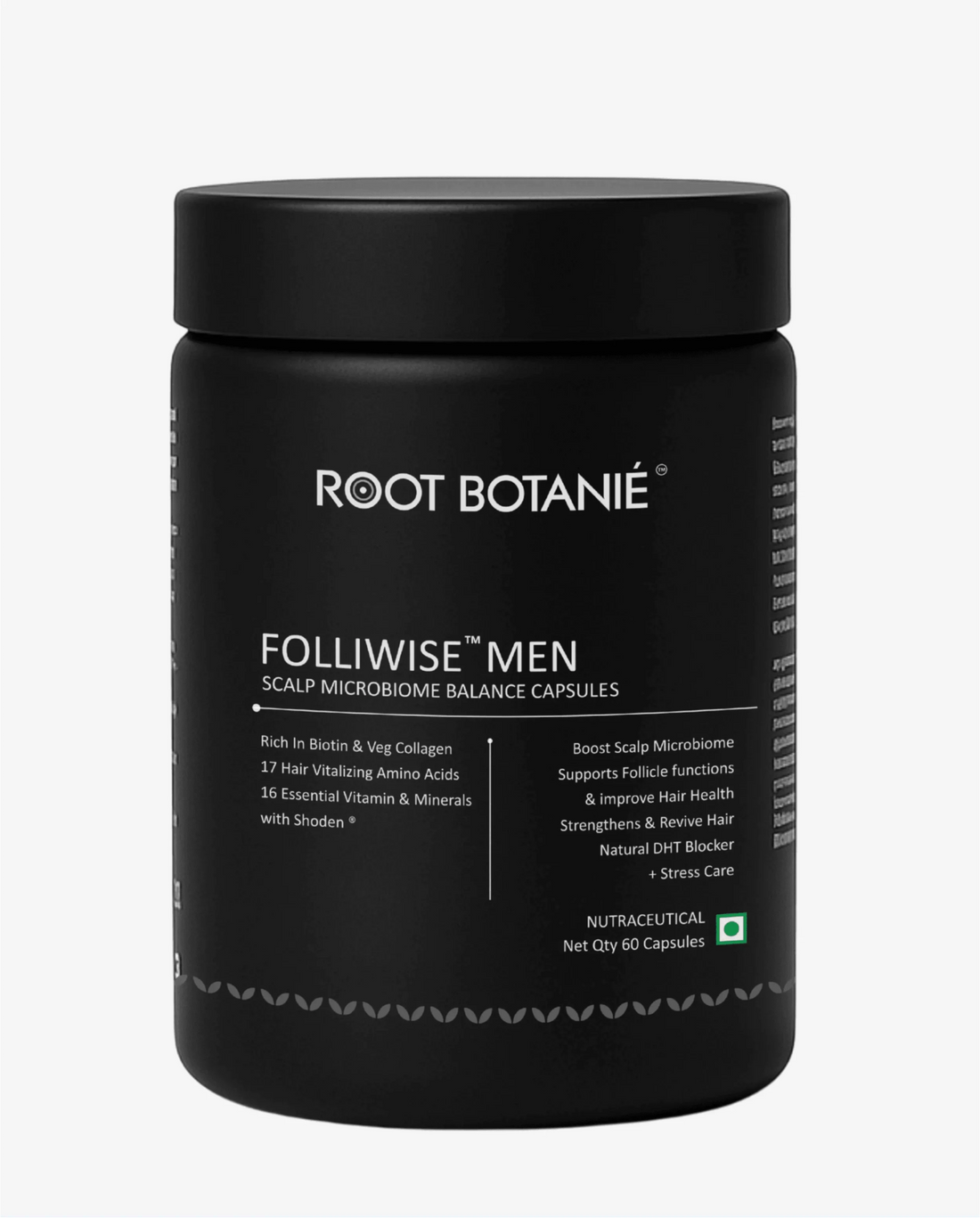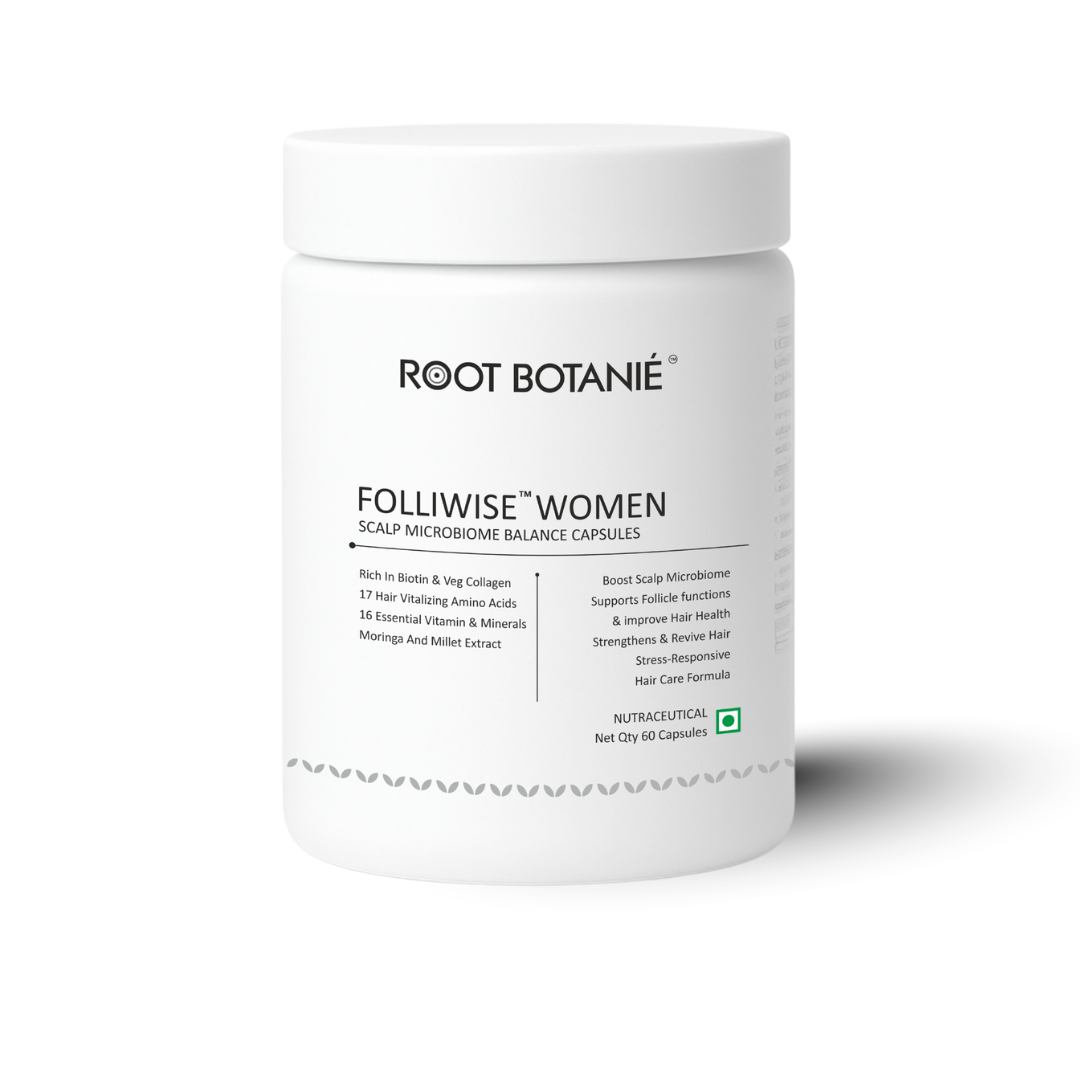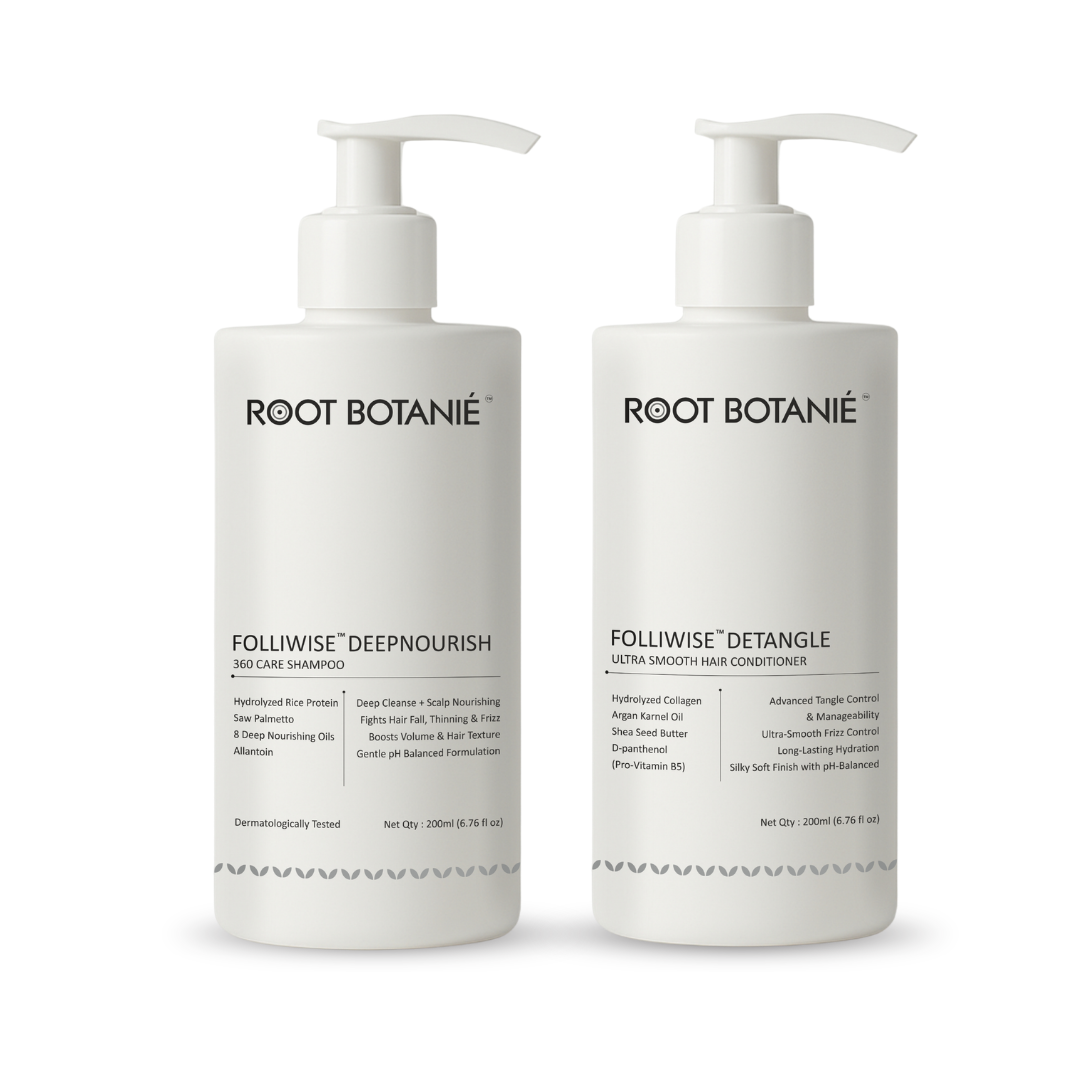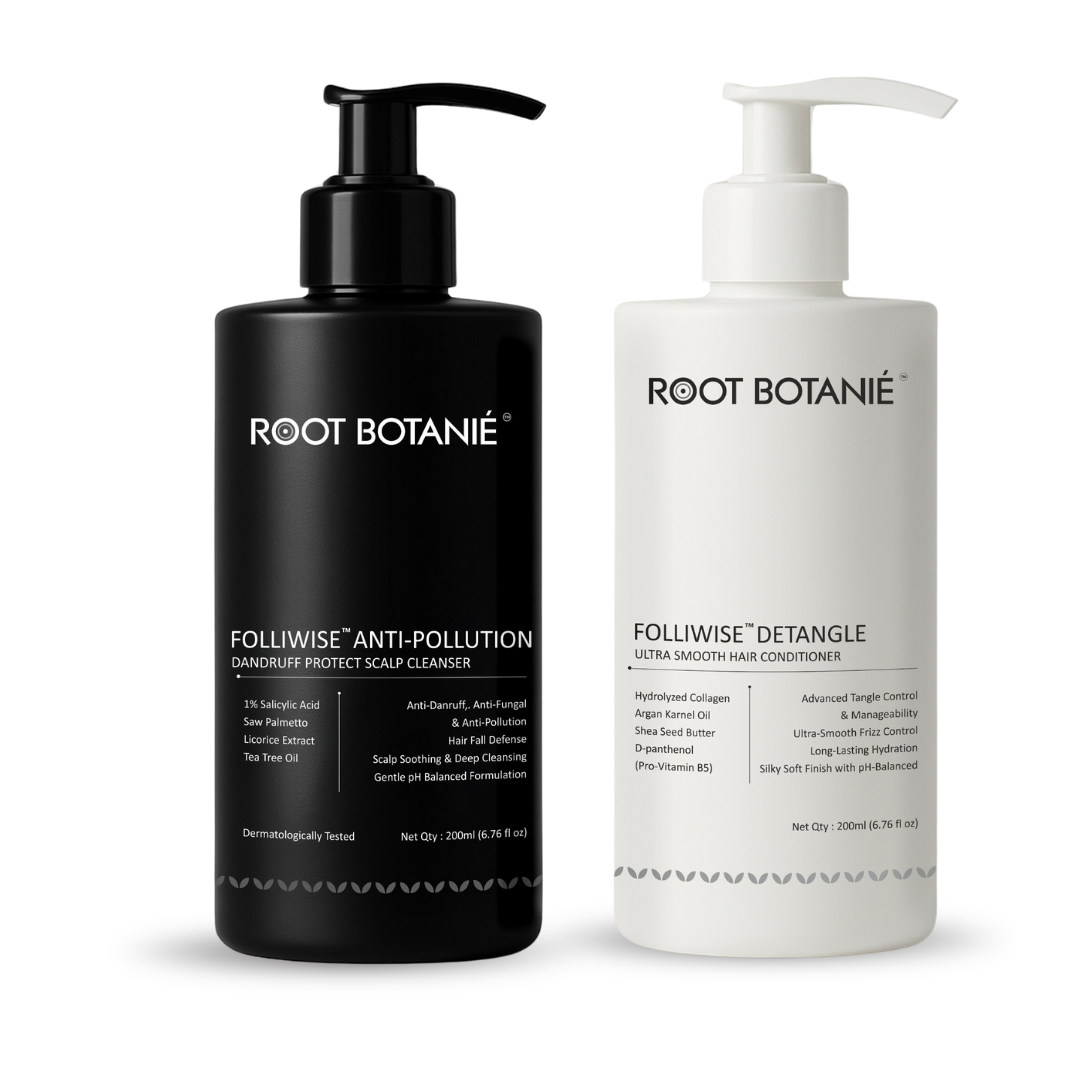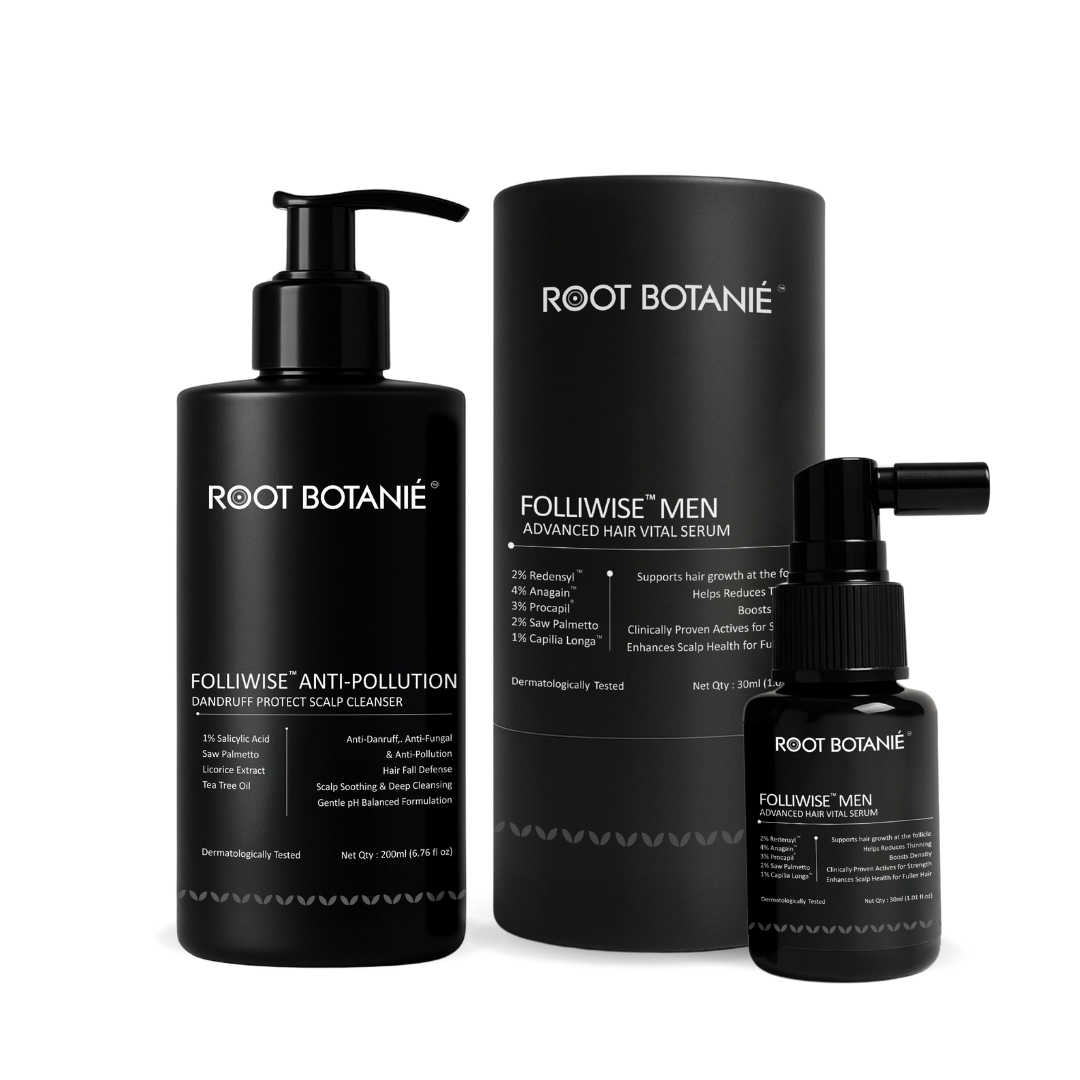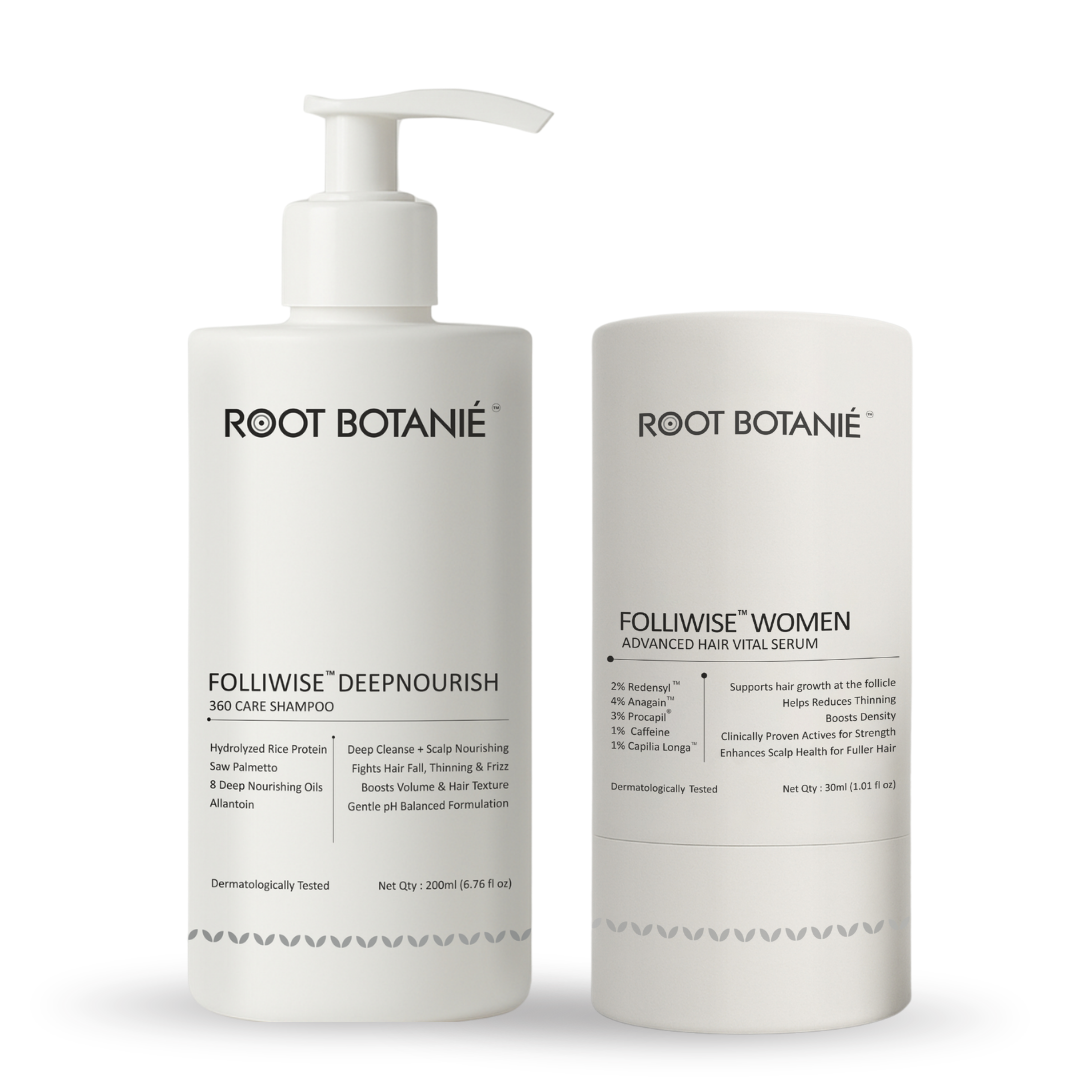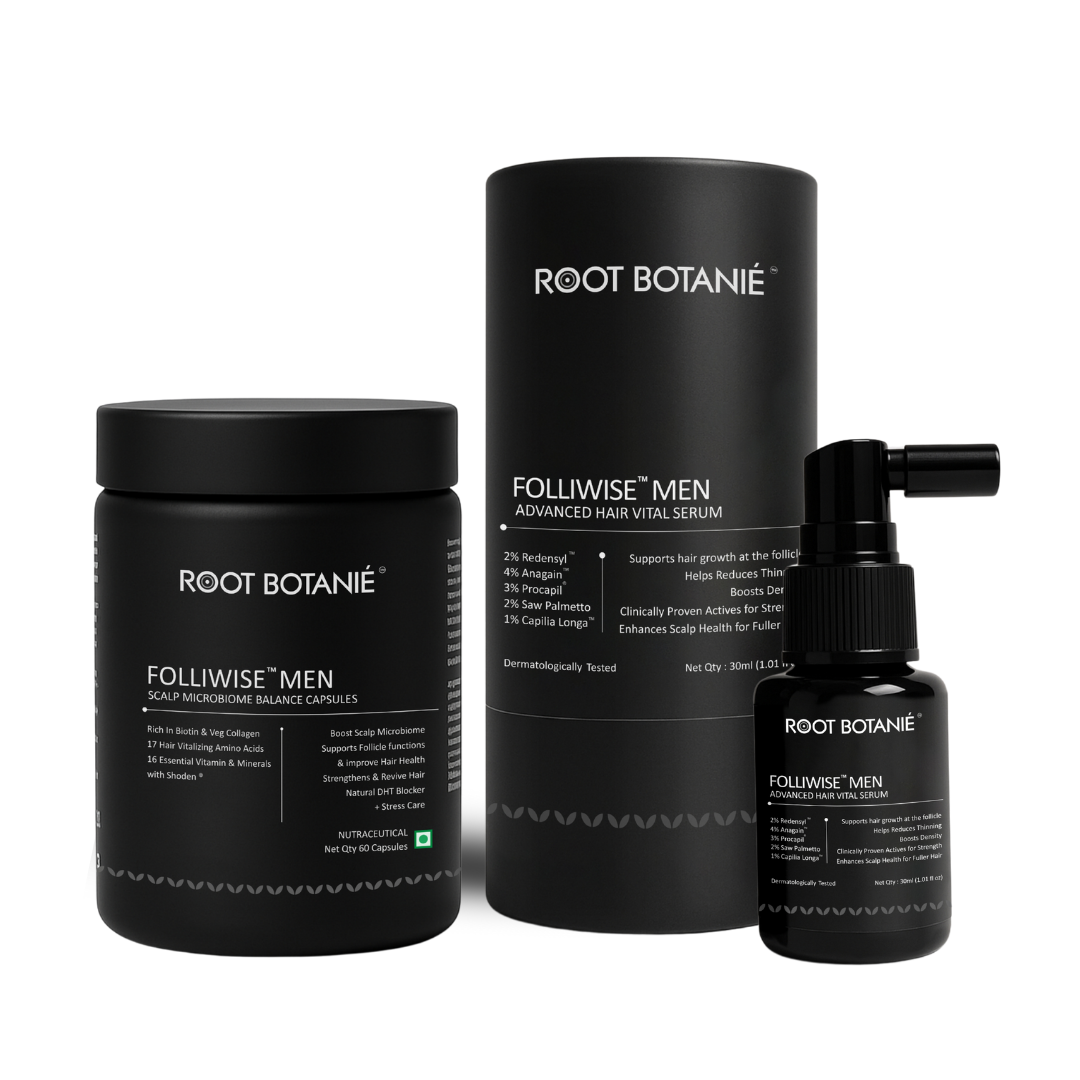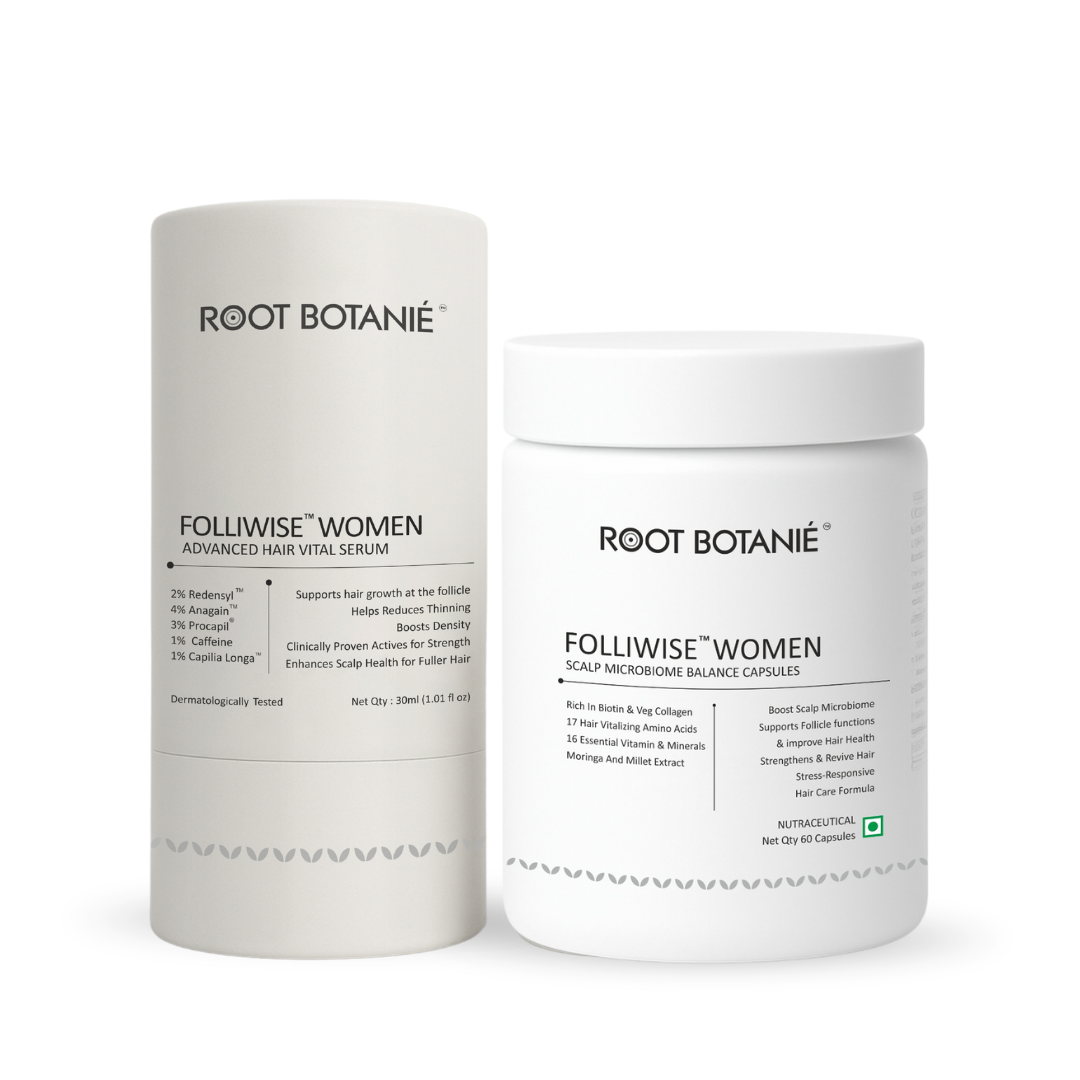The Best Natural and Safe Ingredients That Reverse Hard Water Damage
Below are 8 highly effective ingredients, backed by science and nature, that help detox, nourish, and restore the scalp.
1. Sodium Gluconate – The Mineral Detoxifier
What it does: Chelates hard water minerals, dissolving calcium and magnesium deposits.
Benefits:
Lifts residue from the scalp
Prevents clogged pores
Keeps the scalp clean and breathable
Why it matters: It's the first line of defense in removing mineral buildup and letting other ingredients work effectively.
2. Glycerin – The Ultimate Hydrator
What it does: Attracts and locks in moisture into the scalp.
Benefits:
Restores hydration stripped by hard water
Soothes dry, tight skin
Softens scalp tissue for better absorption
Why it matters: Glycerin revives a dehydrated scalp and improves the efficacy of oils and treatments.
3. Cocamidopropyl Betaine – The Gentle Foaming Cleanser
What it does: Derived from coconut oil, it creates rich lather even in hard water.
Benefits:
Removes dirt and sebum gently
Maintains natural scalp oils
Makes washing effective even with poor water quality
Why it matters: It’s essential for cleansing without stripping, especially in hard water conditions.
4. Amla Extract (Phyllanthus Emblica) – Ayurvedic Detoxifier
What it does: Loaded with Vitamin C and antioxidants, Amla strengthens roots and boosts circulation.
Benefits:
Fights inflammation and dandruff
Strengthens follicles damaged by mineral stress
Boosts scalp immunity
Why it matters: Amla is a natural rejuvenator that brings back life to a stressed, inflamed scalp.
5. Bhringraj Extract – The Follicle Reviver
What it does: Known in Ayurveda as the “king of herbs for hair,” Bhringraj improves blood flow and follicular activity.
Benefits:
Revives dormant follicles
Reduces hair fall
Repairs mineral-induced follicle damage
Why it matters: Especially helpful for those experiencing thinning or receding hairlines due to hard water.
6. Shikakai (Acacia Concinna) Extract – The Natural Cleanser
What it does: Gently cleanses the scalp without disrupting pH balance.
Benefits:
Removes buildup and excess oil
Soothes scalp irritation
Enhances scalp softness and shine
Why it matters: Shikakai balances harsh effects of mineral-heavy water and cleans without foam.
7. Castor Oil & Coconut Oil – The Scalp Shielders
What they do: Restore the lipid layer and strengthen the scalp barrier.
Benefits:
Lock in moisture
Protect follicles from external damage
Promote healthy hair roots
Why it matters: These oils replenish what hard water strips away, improving elasticity and scalp softness.
8. Saw Palmetto Extract – The Scalp Hormone Balancer
What it does: Blocks DHT buildup and reduces inflammation from hormonal triggers made worse by hard water.
Benefits:
Prevents follicle shrinkage
Soothes irritation
Promotes healthy hair growth environment
Why it matters: Great for anyone experiencing scalp inflammation or pattern hair loss in hard water areas.
How to Use These Ingredients in Your Routine
Look for shampoos, scalp cleansers, or serums that combine these ingredients to fight hard water effects holistically. A good scalp care routine should:
Gently cleanse away minerals (Sodium Gluconate, Shikakai, Cocamidopropyl Betaine)
Hydrate and repair (Glycerin, Castor Oil, Coconut Oil)
Rejuvenate follicles (Amla, Bhringraj, Saw Palmetto)
Tips for Managing Hard Water Damage Daily
Use a mild, chelating shampoo 3–4 times a week
Avoid harsh sulfates or alcohol-based products
Massage gently to promote absorption
Rinse with lukewarm water, not hot
Use a lightweight serum with humectants and herbal oils
Conclusion: Hard Water Is Harsh, But Nature Has a Remedy
While you may not be able to change your water source, you can change how your scalp reacts to it. Ingredients like Sodium Gluconate, Glycerin, Cocamidopropyl Betaine, and Ayurvedic powerhouses like Amla, Bhringraj, and Shikakai offer proven protection against mineral buildup, dryness, and follicle damage.
What makes this even more effective is that Folliwise Deep Nourish 360 Care Shampoo doesn’t just stop there—it also includes other scalp-restoring actives like Flax Seed Extract, Kalonji Oil, Sweet Almond Oil, Argan Oil, Olive Oil, Rice Protein, and Allantoin, all of which help hydrate, protect, and repair your scalp from the harsh impact of hard water. This thoughtfully curated blend ensures deep nourishment, scalp comfort, and healthier, stronger hair—even in mineral-rich water conditions.
So if you're battling dryness, flakes, or buildup, switching to a hard water-resilient formula like Deep Nourish is the smartest step you can take toward scalp health and hair vitality.
Frequently Asked Questions (FAQs)
1. What are the signs that hard water is damaging my scalp?
Common signs include dryness, itching, flaking, increased dandruff, dull hair, and product buildup. You might also notice your shampoo doesn’t lather well, or your hair feels greasy or sticky even after washing.
2. Can hard water cause hair fall?
Yes. Hard water leaves mineral deposits on the scalp that clog hair follicles and irritate the skin, which can weaken hair at the root and lead to increased hair shedding or breakage over time.
3. Which ingredients help protect the scalp from hard water?
Ingredients like Sodium Gluconate (chelating agent), Glycerin (hydrator), Cocamidopropyl Betaine (gentle cleanser), and Ayurvedic extracts such as Amla, Bhringraj, and Shikakai help detoxify, soothe, and hydrate the scalp, reversing hard water damage.
4. Is there a natural way to fix hard water effects on the scalp?
Absolutely. Natural ingredients like Amla, Bhringraj, Castor Oil, and Coconut Oil can cleanse mineral residue, balance scalp oils, and support healthy hair growth—without harsh chemicals or synthetic treatments.
5. How often should I wash my hair if I live in a hard water area?
Use a shampoo formulated to combat hard water effects 3 to 4 times a week. Make sure to rinse thoroughly and avoid using very hot water, which can worsen dryness and irritation.
6. Can switching shampoo help with hard water damage?
Yes. Choosing a shampoo that includes chelating agents and scalp-repairing botanicals can significantly reduce buildup, hydrate the scalp, and improve overall hair texture and health.
7. Does oiling the scalp help with hard water damage?
Yes, but only when used alongside the right shampoo. Oils like Castor, Coconut, and Almond help restore the scalp's moisture barrier and protect follicles, especially when paired with a cleanser that removes mineral buildup.
